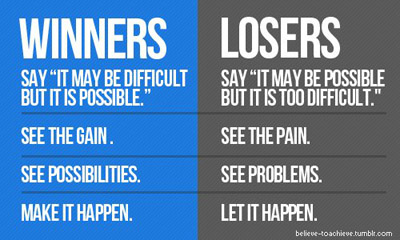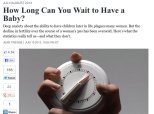Women’s News: Is the Answer No? Ask For It Anyway
Women’s News: Is the Answer No? Ask For It Anyway
Rachel Simmons
Co-founder of Girls Leadership Institute and author of the New York Times bestsellers “Odd Girl Out: The Hidden Culture of Aggression in Girls” and “The Curse of the Good Girl”
One of the most important skills we learn as girls is the ability to ask without knowing the outcome: to apply for an opportunity we might not get, to raise our hand even if we don’t know the right answer, to ask for what we want even if the answer will surely be no.
Yet when it comes to friendship problems, too many of us don’t say what we need because we worry we’ll hear the word no. The fear of getting rejected, or the fact that “things will never change” are the most common explanations girls and women share about refusing to speak up.
When we are driven by the anticipated outcome — the word “no” — we allow fear and anxiety to make our decisions for us. We don’t develop the vital muscle of risk taking that allows us to take leaps, be surprised and discover new experiences we never would have had if we’d played it safe.
This is a missed opportunity, not only for women’s relationships but for our leadership potential. Monday, Slate’s Katherine Goldstein blogged about her experience in a Lean In group. After three months together, three out of seven members have asked for raises at work.
There are few requests more uncertain and anxiety provoking than asking for a raise. But what’s even more impressive is that one of Goldstein’s colleagues asked even when she was pretty sure her organization’s budget couldn’t afford it.
Even when she knew she’d most likely get rejected.
“I just wanted to voice that I expected to be paid more,” the woman explained. “So the lesson I learned was that even in an organization with limited resources, asking is a huge deal.”
Imagine if girls and women adopted the same attitude about confronting the friends who have let us down. Instead of giving up before saying a single word, we would choose to value our voices. We would privilege the importance of speaking up for ourselves over the outcome for the relationship.
I often say girls’ relationships are their most important classrooms. It’s in our first intimate relationships where we learn how to stand up for ourselves, negotiate to get what we want, and compromise.
But it’s also in friendship that many of us learn to value the relationship over ourselves. It’s where we internalize the belief that preserving a connection — and someone else’s opinion of us — is more important than saying what we really think.
Over time, as we choose not to speak up and tell that friend to stop bossing us around, or that she’s been neglecting us, or that we’d like her to stop asking us how much we paid for our clothes, two things happen: the muscles to assert our feelings atrophy. And our beliefs about conflict – namely, that we should avoid it if we don’t know what the outcome will be – start to direct our choices.
What we learn in our friendships as girls becomes the foundation for the skills we employ across all areas of our lives as women, and especially when we get our first job. As I tell my undergraduate students, if you can’t tell your roommate that you need her to turn down the music at 1:00 a.m., you won’t magically be able to ask a colleague to stop telling offensive jokes.
That girl who refuses, over and over again, to tell her friend how she feels because “what’s the point” and “she won’t care, anyway,” may become the woman who refuses to ask for a raise because “what’s the point” and “there’s no money, anyway.”
If you’re parenting a girl, encourage her to advocate for herself just for the sake of using her voice and communicating her value. If you’re a recovering girl, these lessons apply to you, too. Speak up, for the sake of speaking up. Every day, all around us, we have the chance to practice.
Because we need to be able to deal with rejection if we want to ever hear the word “yes.”
Women’s News: The Atlantic’s Fertility Story Just Told So Many Women What They Want To Hear
Margaret Wheeler Johnson
Women’s Editor
As Slate outlined in a brilliant infographic last year, the Atlantic has made a business out of running dramatic stories that scrutinize women’s life choices. Don’t hook up. Marry anyone. No, wait, stay single — men aren’t doing so well right now. Get a nanny, get adivorce. Get used to less sex, have more sex, recognize that, no matter what, you will feel like you aren’t trying hard enough.
The magazine’s latest female-targeted story, “How Long Can You Wait To Have A Baby?” by Jean Twenge, is about another contemporary “female problem” — how late is too late to get pregnant — and contains many of the same elements of its predecessors in what Slate called “The Atlantic Guide to Womanhood.” The reporter’s personal story threads through the narrative as she (and as Jessica Grose once observed, the author of these marriage/babies/sex/divorce stories is always a she) tracks a trend or truth the rest of us have supposedly overlooked.
But where previous stories in this special genre have involved a fair degree of scare-mongering — men are in decline, you will never get married, you will never have it all — Twenge’s piece is all about how a fear repeatedly encouraged in modern women, that they will not be able to conceive if they wait too long — is based on old science and exaggerated if not entirely manufactured.
The widely cited statistic that one in three women ages 35 to 39 will not be pregnant after a year of trying, for instance, is based on an article published in 2004 in the journal Human Reproduction. Rarely mentioned is the source of the data: French birth records from 1670 to 1830. The chance of remaining childless–30 percent–was also calculated based on historical populations. In other words, millions of women are being told when to get pregnant based on statistics from a time before electricity, antibiotics, or fertility treatment. Most people assume these numbers are based on large, well-conducted studies of modern women, but they are not.
More recent studies, she reports, found that women over 35 have between a 78 and 82 percent chance of getting pregnant within a year. Also, most fertility problems have nothing to do with women’s age.
She goes on to explore why fertility experts haven’t made this clear to women — basically, fertility is hard to study, they spend most of their time thinking about and treating women who are having trouble getting pregnant, and, terrifyingly, even they frequently cite data whose source can’t be found. (Twenge doesn’t mention that fertility clinicians, at least, stand to benefit financially from women’s heightened fear of infertility. The more scared women are, the more likely they are to take expensive elective measures like egg freezing to improve their chances of conceiving.)
Much like Hanna Rosin’s 2009 Atlantic cover story “The Case Against Breastfeeding,” the piece is an acknowledgment and answer to the frustration of women struggling to do the right thing who have been told over and over again that if anything goes wrong, it’s their fault. Twenge makes the not new but significant point that there are compelling financial and professional reasons not to have babies early: One study showed that a woman’s career earnings increase by 10 percent for every year she puts off having a kid. And she dares to make a concrete and optimistic prescription: “Plan to have your last child by the time you turn 40. Beyond that, you’re rolling the dice, though they may still come up in your favor.” With three kids she had over 35, she’s also living proof that the haters can be wrong. “It’s nice to be right,” she writes. Do you hear the women cheering?
I hope she is, in fact, right, as I suspect does every other American female between 25 and 40 who wants a career and a family and has been taught, in part by stories in the Atlantic and similar publications, that having both may be impossible. If she isn’t, we at least know that the Atlantic lady-story machine is churning out content as irresistible as ever — with added empathy. There are no three words more seductive to modern women than, “You have time.”


